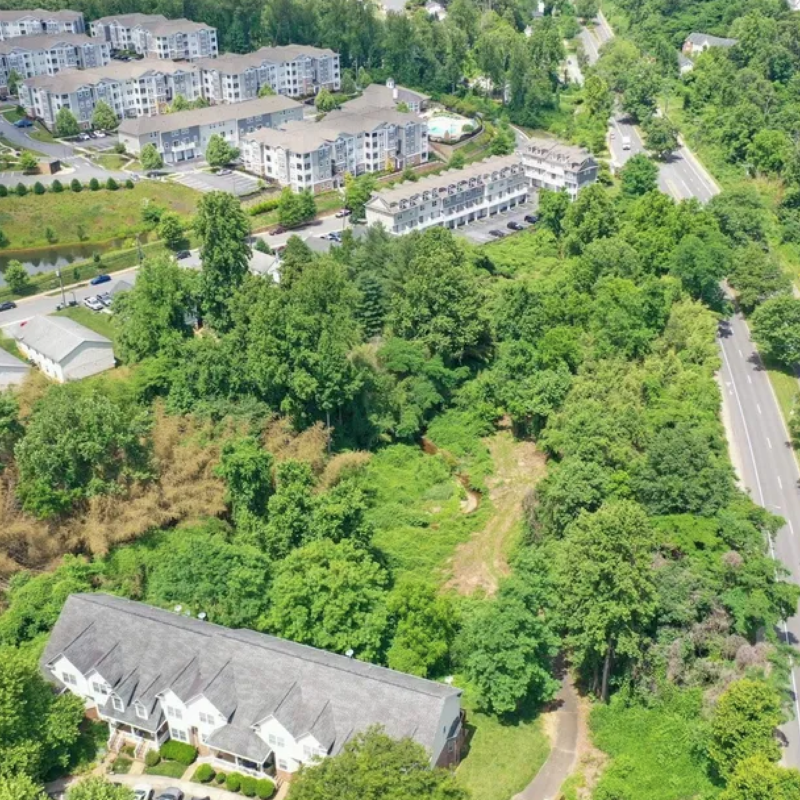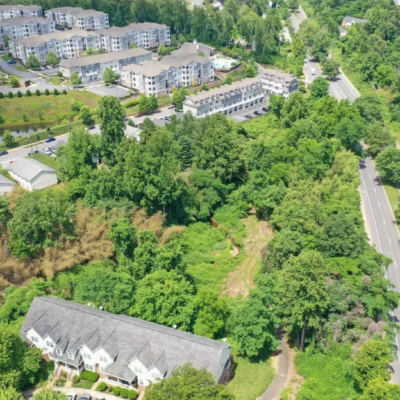Jim Justice II doesn’t call central Virginia home, but his footprint in the region is big—and growing.
Justice, the CEO of coal outfit James C. Justice Companies who added Wintergreen Resort to his holdings last month, owns thousands of acres of land in the region, including a 4,500-acre tract in Albemarle County. In a phone conversation last week from his home in Lewisburg, West Virginia, he said he’s working on a vision for a trail of linked tourist destinations stretching from the Tidewater to the Blue Ridge.
“I feel a sentimental attachment to the land and to our heritage, especially in the Virginias,” he said.
Forbes puts Justice’s net worth at $1.2 billion, a fortune built from coal mining operations his father started in West Virginia. When he joined the company in 1976, the younger Justice expanded it to include commercial grain, corn, and soybean farms in the South. He sold off the company’s West Virginia coal mines in 2009, shortly before he paid $20 million for the Greenbrier, the landmark West Virginia hotel that was on the brink of bankruptcy, and said he’s since invested upwards of $400 million in the property, including building an $80 million underground casino. Meanwhile, according to Forbes, his company is still mining coal in Kentucky, Tennessee, and Virginia and running farms in a number of states.
The Greenbrier purchase was the first of what’s become a trio of major tourist destination acquisitions. Justice bought The Resort at Glade Springs in Daniels, West Virginia, in 2010, and added the struggling Wintergreen Resort in Nelson County to his portfolio this year.
But the high-profile properties aren’t his only foothold in the region. Over the last three decades, his family has acquired a number of historically significant Virginia farms. The first purchase was in 1979, he said, when his father bought 100 acres near Lexington. Then came a 1,600-acre former plantation on the Rapidan River in Culpeper, and Flowerdew Plantation, a historic home on the south bank of the James River in Prince George County and the site of one of the earliest English settlements in the country. The family also owns another historic property in Orange, Justice said.
The estates all had useful farmland, but their historic significance was important, too. The same consideration influenced his December 2010 purchase of a 4,500-acre property just south of Monticello, previously owned by paper and packaging company MeadWestvaco, he said.
The family has kept using much of its Virginia acreage to grow crops. The MeadWestvaco tract, sold for $23.75 million, had long been used for timber—another family business interest—and Justice said he planned to carry on cutting there on the same management plan.
But Justice said he sees potential for an entirely new venture: a series of retreat destinations, linked to the Greenbrier and his other resorts by a common brand and staff.
“We thought there was a way to integrate all these properties together,” he said. “A signature marketing area for us at the Greenbrier has always been the Charlottesville, Richmond, and D.C. area, and we had many requests from people wanting to do retreats, special events, and weddings not far from the population centers.”
He was less firm on the future of his Albemarle land. The tract, which lies in the southern viewshed of Monticello, has about 450 approved potential home sites. He’s not ruling out building there, but said he understands the importance of the land and the desire to keep it undeveloped.
“You never say no on any project, but at the same time, I want to try to do what I can to not take away but perpetuate the greatness of that area,” said Justice, including putting a “significant” amount of land in conservation. “I’m going to be one of the easy guys to work with on that front,” he said.
Thomas Jefferson Foundation President Leslie Greene Bowman said in an e-mail that her organization, which owns Monticello and 2,500 acres of Jefferson’s original estate, is “committed to working with our community partners” to protect more land in the area.
“The land to the south of Monticello is historically significant, since it remains largely as Jefferson saw it,” Bowman said. “We’ve been in touch with Mr. Justice’s team and we look forward to welcoming him to the neighborhood and working together to protect Jefferson’s views for future generations.”
Wintergreen presents a more immediate challenge for Justice, who declined to say how much he paid for the property. A recent report in the Charleston Daily Mail estimated the cost was between $12.5 and $16.5 million.
Justice said he originally turned down more than one offer to buy the 11,000-acre resort, but then had a change of heart. He’s an avid golfer, and one of the last places he golfed with his dad before he died was Wintergreen’s mountain course. The spot has had special importance ever since.
“I’ve played all over the country, but that’s the most beautiful course I’ve ever played,” Justice said. And despite Wintergreen’s financial woes—compounded by a slow season and a legal battle with the state on the value of easements sold on a large land parcel—Justice said the purchase makes sense.
“This is right in our wheelhouse as far as our marketing area,” he said. Including other recent acquisitions, he now owns nine golf courses in the region. “We think maybe there’s a way to create a trail of the Virginias,” he said, that would encourage people to play multiple courses. Add in possible future retreats at the historic sites he owns further east, and “you could even compete, marketing-wise, with Myrtle Beach.”
At the same time, Justice said Wintergreen’s ski slopes could help fill a gap. “We’re trying to solve the riddle of January, February, and March,” he said. “With the Greenbrier, that’s our slow time.”
He said discussion of any major changes to how the resort is run would be premature, but he was willing to share one key improvement he’s planning: a mountain top water tank that would allow for more snow on the slopes. “Their snowmaking capacity is good with the equipment they have, but their water capacity is bad,” he said. “That’s one of the things we’ll try to move on as quickly as possible.”
In the meantime, Charlottesville can expect to see more of the man whose company now holds title to a string of properties to the city’s east, north, and west. With two children living in Virginia and close friends in Charlottesville, he’s no stranger to the area.
“I’m there more than you’d know,” he said.




